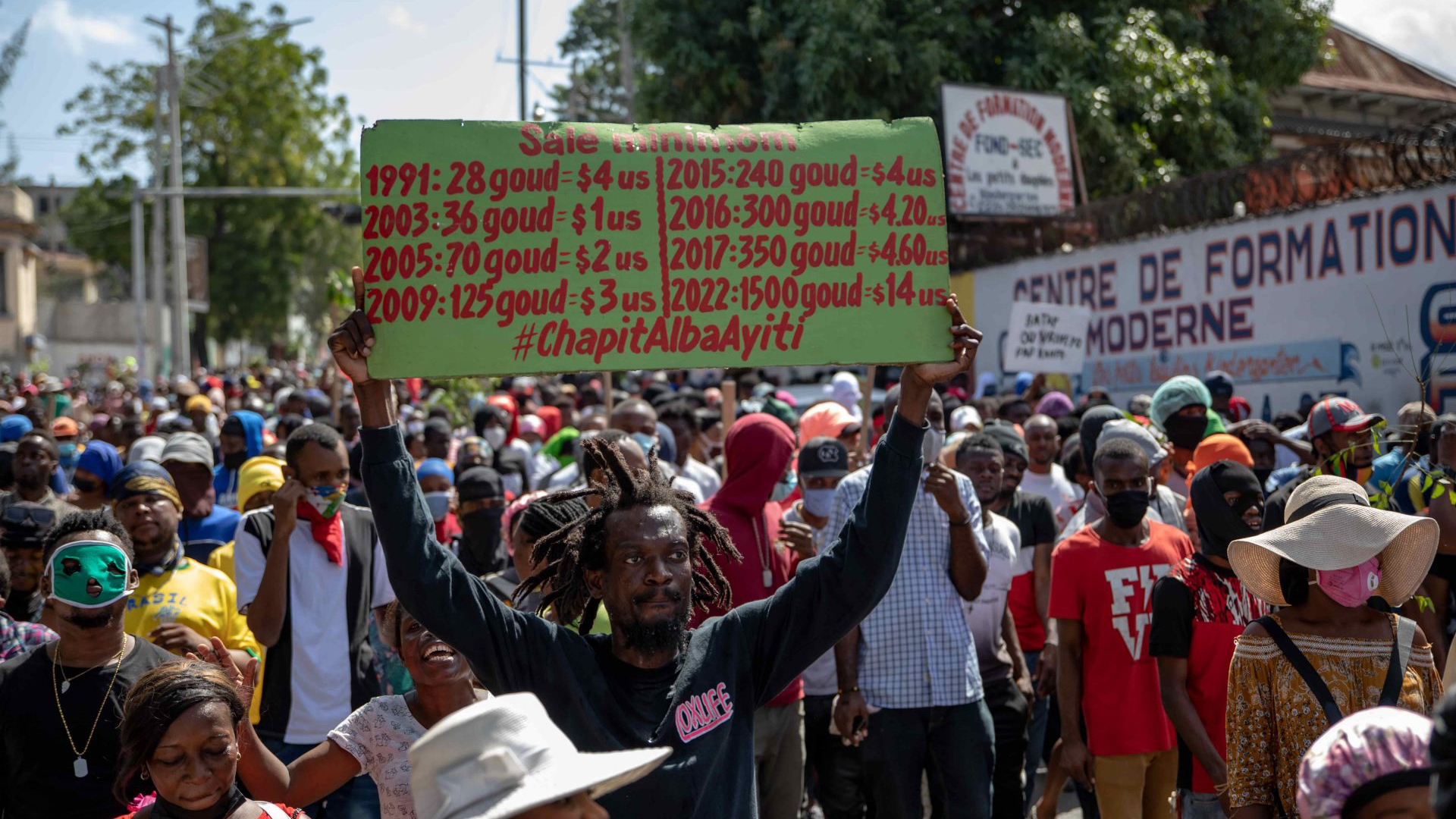Thousands hit the streets in Haiti once again on Monday, September 26, protesting amid the economic, political and social crisis in Haiti, demanding the resignation of de-facto Prime Minister and acting President Ariel Henry.
In the capital of Port-au-Prince, protesters organized two massive simultaneous marches to Henry’s official residence. Citizens gathered at the Champs-de-Mars public square and at the Airport Crossing, renamed by protesters as the Resistance Crossing, from there marching to the Prime Minister’s residence. Similar massive rallies were held in the Carrefour and Gonaïves communes. Demonstrations, protests, roadblocks, and sit-ins denouncing the Henry government were organized in almost all main cities.
Today in Carrefour, #Haiti near the capital. They're chanting "Revolution" and "The river has flooded." This is the 6th week of #Haiti's rebellion, and no UNSC can stop the river from flooding. https://t.co/3LmuEAI33o pic.twitter.com/tsA5GRdcZT
— Madame Boukman – Justice 4 Haiti 🇭🇹 (@madanboukman) September 27, 2022
The call for the protest actions was given by various civil society organizations, popular movements, and trade unions from diverse sectors as a part of the two-day national strike on September 26 and 27, with nationwide mobilizations on September 26 and 28.
For the past five weeks, since August 22, Haitians have been tirelessly mobilizing against increasing poverty and food insecurity amid soaring prices of essential commodities and basic services; acute shortage of fuel amid brutal increase in prices; widespread gang-related kidnappings, killings and violence; and the crushing devaluation of the national currency, the Haitian Gourde, against the $USD.
Anti-government protests have intensified since September 12, following the announcement that the national government was increasing the prices of gasoline, diesel and kerosene. According to reports from local media, the fuel prices have hiked by between 128% and 194%. The price of gasoline went up by 128%, from 250 per gallon to 570 gourdes (4.81 USD$), that of diesel by 189.80%, from 353 per gallon to 670 gourdes (5.65 USD$). Kerosene rates rose by 194.60%, from 352 per gallon to 685 gourdes (5.78 USD$).
For the past two weeks, stopping the suffocating rise in fuel prices has become Haitians’ second fundamental demand. The unconditional exit of de-facto PM Henry and his anti-human government remains the first. Haitians have blamed the international community for their dire situation, arguing that its support for Henry is keeping him in power, despite his lack of legitimacy.
Read more: “The Haitian people need a socialist state,” says journalist Jean Waltès Bien-Aimé
In the beginning of September, over 100 social movements and organizations called on the US, the UN, the OAS and the countries that make up the Core Group to drop their support for the Henry government and stop interference in Haitian internal affairs. They demanded that Haiti’s right to self-determination be respected, as well as the right of Haitian people to mobilize.
Haitians are also demanding the application of the Montana Agreement. This Agreement advocates the installation of a transitional government to govern the country for two years, in order to recover the nation from the crisis caused by the ruling far-right Haitian Tèt Kale Party (PHTK), rebuild society, and organize elections for the next government.
On September 26, the left-wing Pati RASIN Kan Pèp la or the People’s Camp ROOT party emphasized that “there is no possible satisfaction of the Haitian people’s demands without a legitimate government.”
The Party called on its members, progressive forces and Haitians in general “to remain vigilant against all infiltration and counter-regulations that come out to divert the true demands of the people.” The party called on political leaders to refrain from using talking points that could mislead or confuse people and cause a riot, such as claims that “foreign military intervention is being prepared because Haitians cannot solve the country’s crisis,” or “it is gangs that are standing up in the street.”
The party also denounced the violent police repression against protesters, and the impunity police enjoy in such acts. Lastly, the party expressed its support for all mobilizations that defend the rights and interests of the Haitian people.





